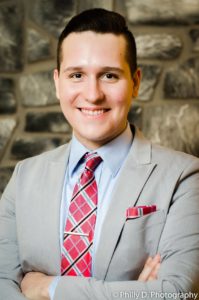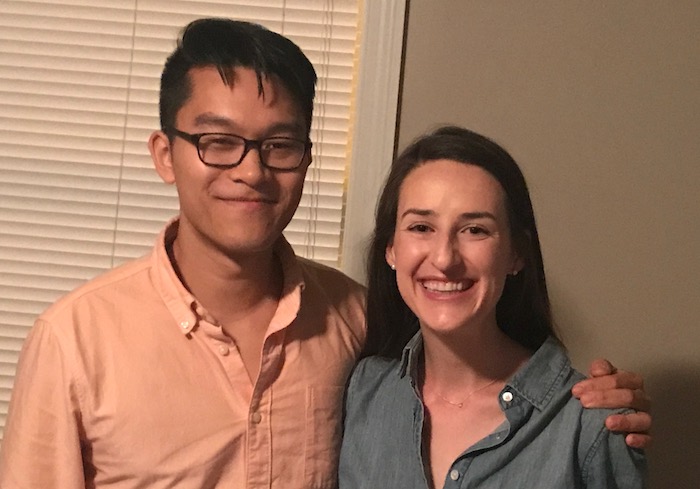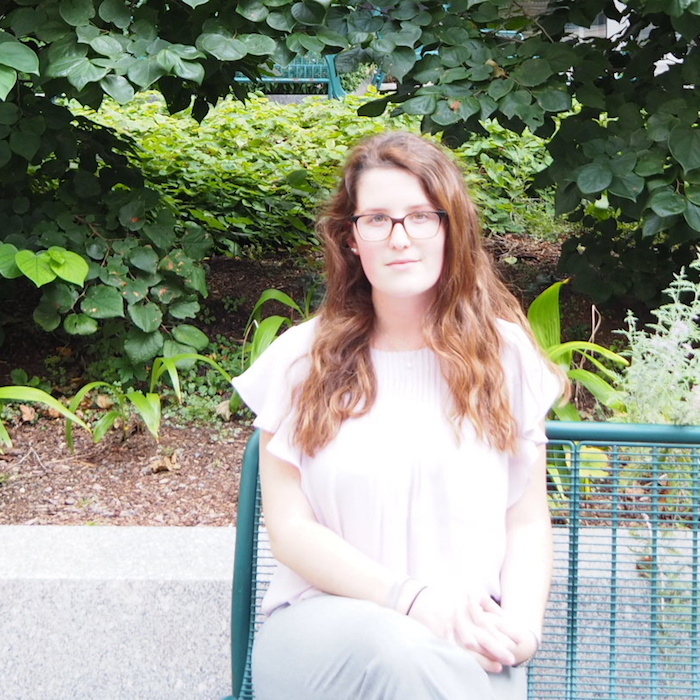Michael is a sophomore at the University of Pennsylvania, where he studies Economics and International Studies. A staunch conservative who has spent his whole life in liberal circles, he has a strong sense of the thing that matters most to him: individual freedom. Our conversation covered his intellectual inspirations and his criticisms of the left – namely the belief in state-created parity. Regardless of your feelings about Michael’s ideas, I would highly recommend reading this article he wrote in The Federalist about receiving death threats for an opinion article he wrote in high school. I think it highlights how things have gone wrong with public discourse.
belief in state-created parity. Regardless of your feelings about Michael’s ideas, I would highly recommend reading this article he wrote in The Federalist about receiving death threats for an opinion article he wrote in high school. I think it highlights how things have gone wrong with public discourse.
How he has been involved in politics:
By my definition, of being in engaged with what’s happening in the country, by identifying what principles that created American, and trying to engage in national politics and local politics, I think I’m a pretty good citizen. I do a lot of writing. I’ve been writing for school papers and other publications since 9th grade. I’m pretty interested and dedicated to writing political stuff. That’s how I engage with those values.
I’ve been involved in some campaigning, and some activism. But I have more of the mind of a writer, someone who explains ideas, rather than someone who comes up with a clever way to get their message across. I could do more direct activism.
Whether he thinks his peers are good citizens:
Many can identify values that ought to be forwarded. And they fight for those values. But I’d argue that they aren’t values that correspond to the founding of America. In fact, they’re in direct contradiction to the values of America. The left and the right are not fighting for the same principles.
What he sees as the core values on the left and right:
The founding values of America – and the ones conservatives are fighting for – are based in the Enlightenment and the Old and New Testament. The best description is aspirational individualism. Fundamental to this ideal are the freedom of speech and to hold guns. The Declaration and Constitution are some of the best documents in terms of limiting government power and limiting control.
Our country has also been directed by basic moral principles from the bible. There’s no argument in the bible that a fetus is not a child. Why does the fetus in the 24th week all of a sudden become a child? Freedom of choice is often just an excuse to eliminate an undesirable class in society. Given the amount people cared about the Old and New Testament back then, the fact that the Bible says, “God knows you in the womb” should be a guide for us.
(On the other hand), the liberal ethic is mainly parody. Today’s left wants to see people in society be equal. That value is not inherently in contradiction to founding values. It’s not in contradiction to the founding to fight for civil rights. Now the terms have been co-opted, however. Now, there’s no difference between men and women. Now, there can’t be difference in interests between groups or a difference in talents between individuals. It’s not possible to consider from ethic of parody that people might not want the same things. It doesn’t grant the individual the freedom to pursue what they want.
There are limits to freedom:
There are limits to that freedom, though. You use your freedom to forward American values when you think the system is going astray. So to kneel for the flag, to cast aside the system for which you’re fighting, doesn’t make sense. It doesn’t make sense to abandon the system.
His thoughts on college activists:
College students are far more dangerous than white nationalists. The KKK is 2,000 members nationally (note: the Southern Poverty Law Center estimates there are 5,000-8,000 registered members of the KKK). The people in Charlottesville had a permit. They have a right to march. College activists, though, don’t believe in free speech, and that’s the foundational civilization value. And recent polls show a lot of students feel this way.
How he thinks young Democrats could improve as citizens:
The average Democrat could be a better citizen by getting out of the echo chamber. I write these things, on the works of Rich Lowry, David French, and Heather McDonnell, and people are outraged as if they never hear these things. They read Salon and Slate. That’s what they base their views on. It’s difficult to have a debate with someone when your frames of reference are completely different. The average Democrat could add to their media consumption. But don’t watch Sean Hannity.
How young Republicans could improve as citizens:
The average young Republican is not a Trump acolyte. They should be careful with trolling. If you’re going to get liberals outraged, you shouldn’t border on being racist or misogynistic. People should focus more on ideas, especially since a lot of conservative ideas already are offensive to people.
The way our country should address its problems:
Maximizing the individual to the greatest extent possible is the best way to run society. The best way to fix issues in society, such as women being underrepresented on tech, is to focus on the individual. You don’t have to do mental gymnastics, or a massive intervention from the state. The left is out of ideas, so they cling to things that sound great but are divisive or unrealistic. The right has a chance to help individuals achieve their aspirations the best they can. Individuals are different and their aspirations are different, so we should’t try to make them all the same. Education is a great way to do this.




